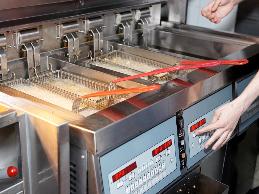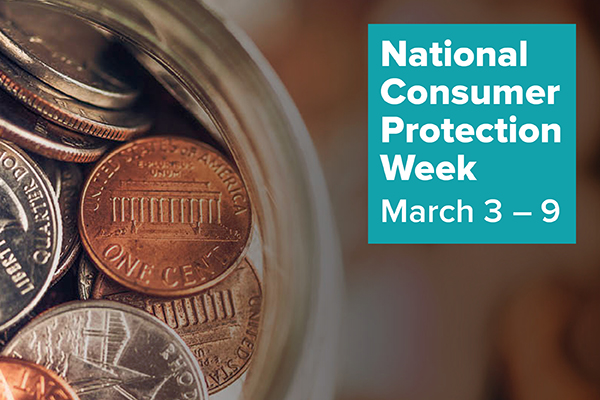Many JAN customers contact us with an interest in starting a food related business.
Below is a sample of the type of food businesses we have been contacted about:
- Food truck or concession
- Cottage food product (such as homemade jams, cookies, breads, and so on) –typically sold at a farmer’s market, local shop, or online
- Catering service
- Coffee/tea cart
- Fruit/vegetable stand
- Consumer supported agriculture (CSA) – subscribing to receive produce from a local farm throughout their growing season
- Cupcake shop
- Limited or full service restaurant or bakery
While the scale of planning requirements and applicable food laws and regulations involved for each of these businesses can be quite different, we’ve included below some general tips that can be instrumental in making any food related venture successful.
Tip 1: Take the time from the outset to research your business idea in the context of your local community and potential market
JAN is located in Morgantown, WV – a medium sized college town with a large public university and many coffee drinkers. Theoretically, opening a coffee shop seems like a sure bet in a town like this. Yet over the years, many coffee shops have come and gone, while a small number have endured. Why? Bad coffee? No parking? Too pricey? If you are considering opening a coffee shop, an important step is to map this market – both historically and now. Which markets are being filled and which are not? What makes what you will offer different, better, cheaper or more desirable? I remember when it was considered to be a competitive edge to have Wifi access. Now this is available in almost any coffee shop, fast food restaurant, or bookstore. My point is that whatever your business idea – even before you embark on a formal business or marketing planning process – get to know your local community and potential market well.
Tip 2: Start small, test your ideas, then scale up
You have a dream of opening a small storefront bakery selling breads, cakes, muffins, and pies. You’ve been baking your whole life and inherited a number of wonderful family recipes you’d like to use. But where to start? Even with a small shop, the initial costs appear daunting – rent, commercial cooking equipment, baking ingredients, insurance, advertising, and so on. If you’ve ever watched the Food Network TV show Cupcake Wars, you may have noticed some of these expert bakers do not have their own storefront shops yet. They are either making their products in their home; in a rented commercial kitchen space; at a culinary incubator; as a business within an already established business; or another creative arrangement. The reason for this is it gives the entrepreneur the chance to start small and test their product ideas without the huge capital investment. This also gives you the chance to build up a client base, establish local business and financial relationships, and then scale up your operation. For example, you might begin by investing in a booth at the local farmer’s market and sell baked goods there. Further down the road, you might advertise at the booth being available to cater parties and special events. You might also make an arrangement to sell baked goods at the local food coop or coffee shops. Through this process, you are collecting data about what works and what doesn’t – what types of muffins are most popular — refining not only recipes but your own vision for your future storefront bakery.
Tip 3: Learn the state and local regulations and laws that apply to your food business
Producing food products commercially whether in a food truck, home kitchen, or restaurant are governed by strict laws and regulations that ensure sanitary standards and the safety of products sold to customers. You need to know what laws and regulations will apply to your business. Some businesses may require special permits – such as those operating a food truck or a business in the home. Organizations such as a local your Small Business Development Center, a Women’s Business Center, or your state extension service are often a good place to start. Your state Department of Agriculture will also have information about food related businesses. Many will also have guides about starting a food related business such as this one available for food entrepreneurs in Pennsylvania.
Some states have passed Cottage Food Laws, which Harvard University’s Food Law and Policy Clinic defines in its publication Cottage Food Laws in the United States (2013) as:
At their most basic, cottage food laws permit the in‐home production and sale of non‐potentially hazardous foods. As of the publication of this report, forty‐two states had some sort of cottage food law, and nine states, including Washington, D.C., did not. Although more than two‐thirds of states have cottage food laws, there is no uniformity among the laws. Some states restrict home‐based food processing activities to a very narrow category of processors (such as on‐farm only). Others cap allowable sales at a low amount, such that in‐home processing activities can only be a hobby and not a viable business or launching pad for a more traditional food processing business. Some cottage food laws are relatively easy to find in the states’ laws and have clear requirements, while other states’ cottage food laws are difficult to find and may not clearly state the requirements for a cottage food operation.
These laws will vary by state, but may also be guided by additional regulations at the city level, such as these in the City of Chicago. You will need to do your research to find out what laws, regulations, or permits will apply to your business.
Tip 4: Build any needed accommodations into the design of your business and test them out
This tip is certainly not exclusive to a food business, but can be very important particularly with accommodations that involve food related work environments such as kitchens, food trucks, shops, or farmer’s markets, as examples. JAN consultants can suggest specific accommodation examples and products, but some potential examples in the food industry may include:
From the JAN’s Searchable Online Accommodation Resource (SOAR):
Gripping or Pinching Tools or Objects – This could apply to cooking utensils such ergonomic knives; reachers to eliminate bending; or specialized baking equipment.
Sitting – This could include anti-fatigue mats for those who need to need to be on their feet all day; headsets that free up hands for cooking; or copyholders that could also hold recipes.
Moving, Carrying, or Lifting Materials or People – Lifting devices to move large food products; motorized carts for use when catering; or eating aids.
Food related business ideas are increasingly popular for JAN customers. We’ve highlighted a few tips that can help in the development of these types of businesses. For more specific information about becoming a food entrepreneur, contact JAN directly and we would be happy to put together individualized resources for you.










